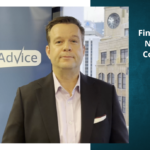The adviser you choose will have a big influence on the effectiveness of your insurance cover.
Here are some pointers to finding the right adviser for you.
Insurance advisers are insurance experts, or guides, who know how to combine various types of insurance so your cover meets your needs. They guide you so that you can keep premiums at a minimum, while getting the best result possible if you ever have to claim.
Ok, so there are things much higher on your list of things to do than getting an insurance adviser. Like getting a cup of coffee or a beer perhaps? Putting your feet up for a while? We understand where you are coming from and it’s ok, we know that insurance is not a subject that will get you jumping up and down with excitement. But sadly, a lot of things in life aren’t that exciting but we still need to do it, or should do it (sigh!).
Insurance belongs on that list – not your fun list. Insurance is about protecting you and your family in a ‘what if this bad thing happens’ scenario. You won’t notice the benefit of having it until you really need it, and then… well, maybe then you’ll be a bit excited knowing that it has really helped you out. To get to the point of being able to rest easy, it’s very helpful to get an adviser you trust or are happy to work with over the long term.
Why get an adviser?
Insurance advisers are not owned by any one insurance company. They have their fingers in lots of pies, so to speak, with expert knowledge about the policies of multiple insurance companies. With this knowledge they can help you find one that offers a combination of features that best fit your unique needs.
Insurance language can be rather migraine-inducing, so advisers can also help explain what it all means so hopefully you don’t have to reach for the paracetamol.
None of us wants to waste money on insurance, so your adviser can combine parts of your insurances so the outcome is the same, but the overall cost is reduced.
If you’re on a budget, like many of us are, there are ways to make the cost of insurance smaller but still have it protect you if you end up having a really bad day.
Their job is to create an insurance programme with the features and benefits that are appropriate for you and your family.
What to look for
If you are contact by a telemarketer, don’t commit to them straight away. Why? You need to check them out. Make sure their credentials are ok so you can be assured that they know what they are doing. Here’s what to look for…
Experience Ultimately, you want to know that your adviser understands how to put together a combination of insurances that meets your needs and is able to advise on which products are most suitable for those needs. This is something which ultimately comes from experience in the insurance industry. You therefore need to look for someone with at least 3-5 years experience. This doesn’t necessarily have to come from being an adviser but could be through working as an employee in an insurance company. If an adviser has less than three years in the industry you should ask about what sort of training they have undertaken. Also ask them if they have a more experienced adviser mentoring them.
Areas of Expertise For most people’s insurance needs, most professional insurance advisers will be able to provide excellent advice on your needs. They can advise you and your family on your life and disability insurance needs and put together an appropriate insurance program. However, if your situation is particularly complex or you have some specific risks that you need advice on, it may be appropriate to seek the advice of a specialist. If you are a business owner, for example, developing integrated insurance can be extremely complex. You should look for someone with experience in creating integrated business and personal insurance cover.
Professional Qualifications You may be surprised, but at the time of writing, there are no specific educational requirements for insurance advisers in New Zealand. However this is likely to change as the regulatory environment evolves over the next few years. There are professional qualifications available, and if an adviser has earned them then it’s a good indicator of knowledge and skill. Currently, there are two main qualifications for insurance advisers:
- National certificate in financial services, level 5, and
- Graduate diploma in business studies (financial planning) or (personal risk management).
There are also two other professional markers of academic success.
- CFP – this stands for Certified Financial Planner and
- CLU – means Chartered Life Underwriter
Advisers with these professional marks are recognised for having high educational and ethical standards in insurance and financial planning.
Professional body membership Another good indicator that the adviser is a professional is if he or she is a member of a recognised professional body such as Financial Advice New Zealand. Members of these bodies are typically held to a higher standard of competence, ethics and professionalism than that required by law.
Testimonials A good adviser will be able to provide you with a number of trustworthy testimonials from previous clients. Ask your prospective adviser for original copies to look at. You can also ask the adviser for the details of one or two clients who wouldn’t mind talking to you about their experience with him or her. Able to add value? The real value of insurance advice isn’t just identifying the insurance product for your situation. It’s also about the added value the adviser brings in terms of helping to identify your risks, estate planning follow-up, negotiating with the underwriters and ensuring that your cover works when it’s most needed – at claim time.
IMPORTANT PLEASE READ: This article is for information purposes only. Its content is intended to be of a general nature, does not take into account your financial situation or goals, and is not a personalised financial adviser service under the Financial Advisers Act 2008. It is recommended you seek advice from a financial adviser which takes into account your individual circumstances before you acquire a financial product. If you wish to consult a Financial Adviser, please use our “find an adviser” database.








